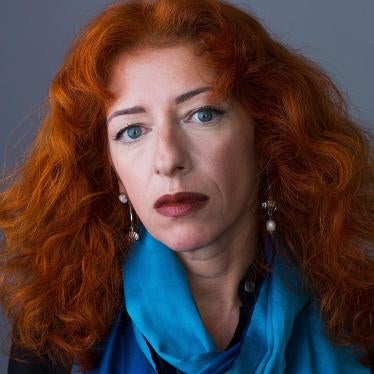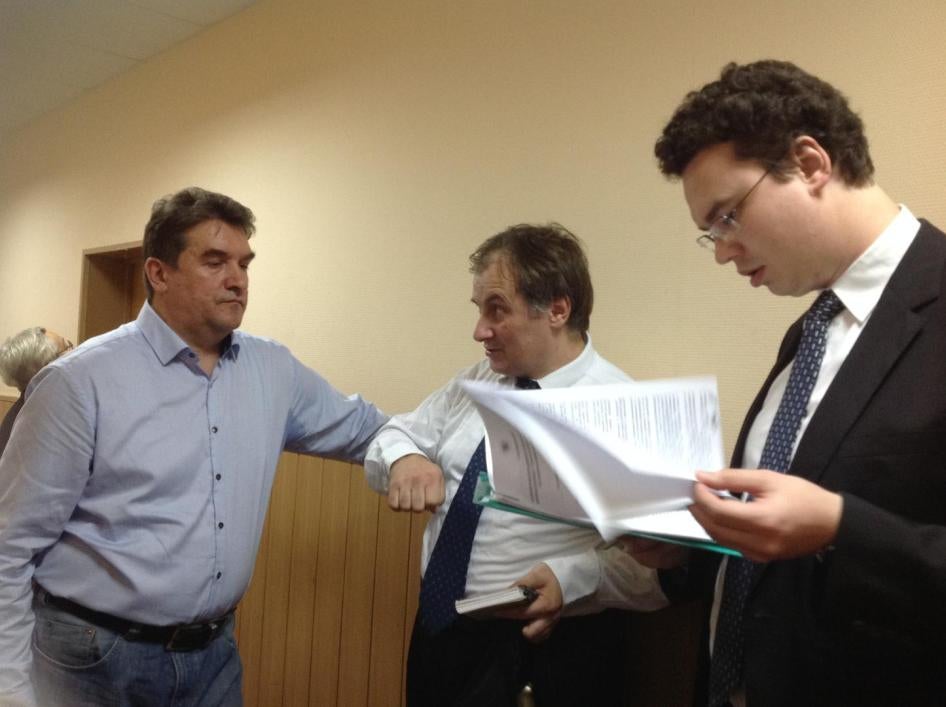The Kremlin's three-year war against independent groups has been driven by government distortion and hysteria, but it just crossed a new line into the absurd.
This week, as all eyes were drawn to President Putin's visit to the UN General assembly in New York and Russia's intervention in Syria, an appeals court in Moscow upheld a 600,000 ruble (approximately $10,000) fine against Human Rights Center "Memorial," one of Russia's best-known independent human rights groups, punishing the organization for something it clearly had nothing to do with.
The ruling alleged that the group failed to comply with Russia's infamous 2012 law on "foreign agents," which requires groups that accept foreign funding and engage in vaguely defined "political activities" to be listed as "foreign agents."
The law enables the government to demonize independent advocacy organizations by branding them as purveyors of "harmful" foreign influence. So far the authorities have put close to 90 groups on the "foreign agents" list, including Human Rights Center "Memorial" and many other highly regarded Russian human rights organizations.
The law requires listed organizations to, among other things, mark all their hard-copy and online publications with the disgraceful "foreign agent" label. In recent months, the authorities have been slapping numerous rights groups with fines for not doing that. The groups still attempt to fight this in the courts. However, what has just happened to the Human Rights Center "Memorial" clearly demonstrates the futility of their efforts: the Human Rights Center was in fact fined over materials produced by another organization.
When the authorities informed Human Rights Center that it violated the law—because in two event announcements they supposedly failed to state that the events were being organized by a "foreign agent" group—the center's representatives looked at the announcements and laughed out loud. "It's a mistake," they told the officials. "This is not us, it's our colleagues from another Memorial organization—an organization that has no "foreign agent" status. So, just forget it, really." They expected the authorities to back off—the situation was too absurd.
The other group, International Memorial, is a sister organization but a totally separate legal entity with its own statutes and board. Though the two groups cooperate and sometimes hold joint events, their work is very different. Human Rights Center "Memorial" documents ongoing human rights violations, most notably in the turbulent North Caucasus. International Memorial works to commemorate Soviet-era repression by carrying out a broad range of memory projects and holding hundreds of talks, public lectures, and expert roundtables. As opposed to Human Rights Center, it hasn't been branded a "foreign agent" and therefore does not have to follow the "foreign agents" regulations.
Government officials seem to have been going after announcements made by International Memorial for two events it was organizing—a debate about the possibility of creating a global Internet-based parliament and a public lecture by a prominent German historian on how the Second World War is remembered in Germany. Officials attributed the announcements instead to Human Rights Center, even though it had nothing to do with these events.
Human Rights Center "Memorial" explained the mistake to the government, but instead of acknowledging a mistake and dropping the case the officials took it to court. On September 4 an administrative court in Moscow found the organization in violation of the law, despite the fact that at the hearing the group's lawyers clearly explained that Human Rights Center "Memorial" had not published the announcements, had not organized those events, and had not participated in them.
These explanations were backed by a letter from International Memorial asserting that the events were theirs and Human Rights Center was not involved, as well as by testimony by the speakers at the events. None of this, however, persuaded the judge, who ruled that the organization breached the law and should pay a fine. Human Rights Center Memorial immediately appealed—but on September 28 a court of appeal upheld the absurd ruling.
"Find me a man and I'll find a reason to prosecute him," was a common Soviet saying in dark times of Stalin. No one has gone to jail over the "foreign agents" law—yet. But it is striking how blatantly the government disregards the facts in the service of this law, and how readily the courts give their stamp of approval.










